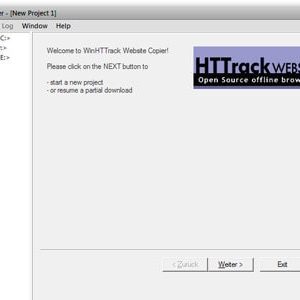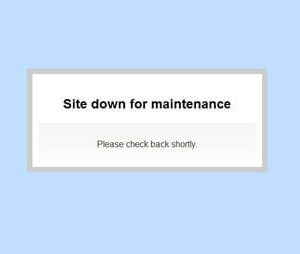In today’s fast-paced digital world, website speed has become a critical factor in determining the success of a website. Slow-loading web pages not only frustrate users but also negatively impact search engine rankings. With so many website builders available, it is essential to consider their page speeds before making a decision. This review aims to evaluate the page speeds of eight popular website builders to help individuals and businesses make an informed choice when creating their online presence. By analyzing the loading times of these platforms, we can identify which website builders are too slow across the board and may hinder the overall user experience.
- Wix Vs Weebly (2023) Battling To Be The Best Website Builder
- Why Website Builders Are Bad 8 Reasons and 2 Myths
- 5 Best Website Builders for Blogging The ‘No-Fluff’ Guide to Choosing a Blog Platform
- Wix ADI Vs Wix Editor How Smart Is Their Artificial Design Intelligence?
- Best Website Builder for Videographers Choose Among Our Top 6 Picks
Whether at home or on the go, when users look up information on the web, they expect an immediate response.
You are viewing: Too Slow Across the Board A Review of Eight Website Builders’ Page Speeds
Initial content such as headlines and navigation should ideally be available within two seconds, giving the user the opportunity to interact with the website.
Your website offers relevant information, is SEO optimized, and user-friendly, too? That’s great – but you’ll still have unhappy visitors if your loading times are too slow.
What makes high page speed scores so important?
First of all, users don’t have the time (or the desire) to wait for a website to finally come around and present its information. This is especially true for viewers who are on the go and using a website’s mobile view.
The expectation is “question-click-answer.” And if that doesn’t work on one website, then they’ll just go ahead and see what the competition has to offer. A slow site gives off a strange vibe – “Is this website even trustworthy?” or “Do the people running the site not know what they’re doing?” are questions many users ask themselves when running into speed issues on the internet. Low speed is roughly equivalent to a website with poor design. That, too, just feels unprofessional.
Secondly, page speed scores are part of Google’s SEO criteria: Slow page speeds can get your rating dropped.
Speed-testing eight providers
We took a look at the average loading times (also known as page speed scores) for eight popular website building providers, which included Jimdo, Webnode, Webs, Weebly, Wix, Yola, 1&1, and Squarespace. We checked three unmodified templates for each provider.
For all providers, desktop and mobile versions were part of the review.
See more : Does Wix offer responsive templates?
We executed the test using Google Page Speed Test, and made sure that the internet speed was identical at all times. Our takeaway from this test: The providers have a lot of work to do.
If you need detailed reports on the resources that your site is loading and their loading times, you can use Dotcom-Monitor.
Only Webnode reaches the 85 points necessary to receive a green rating at all. However, it does so only barely, and only when using the desktop view. Here is a table showing the average page speeds:
| Website builder | Desktop | Mobile |
|---|---|---|
| Webnode | 87 | 68 |
| Yola | 82 | 65 |
| Weebly | 81 | 66 |
| Webs | 78 | 62 |
| Jimdo | 75 | 60 |
| Wix | 75 | 55 |
| 1&1 MyWebsite | 73 | 59 |
| Squarespace | 70 | 47 |
Disclaimer: We randomly picked three templates for each provider. The page speed scores listed above are the average produced by all three templates.
Page speed test results: This is not okay.
While we appreciate that the examined providers offer mobile website versions, we did notice that these mobile versions were particularly slow: None of the providers were even close to the desired 85 points, ranging from 47 (Squarespace) to 68 (Webnode).
To us, it’s particularly surprising that Squarespace, one of the most expensive website builders out there, scores the lowest. When they re-designed their website builder in 2012, enabling fully responsive templates, page speed apparently was not a priority for them.
As an independent, customer-oriented website, we want both the users and the providers to be aware of these lackluster page speed test results. After all, the issue with these results is the fact that the user really has no influence on many of the underlying causes of slow page speeds.
They are caused, for instance, by JavaScript and CSS compression algorithms or web site elements that delay or even block the rendering process. The providers need to take care of this in general. As mobile internet use is on the rise, however, they will have to pay special attention to optimizing mobile page speeds.
And what happens if my website’s page speed score is low?
See more : Your Ultimate Guide to Squarespace Templates
Anyone visiting your site, most particularly those with a slow internet connection, will have to wait even longer for the page to load, causing an impatient user to simply leave and look for a faster website. As a result, your competition will most likely rank above you in Google, despite identical content quality.
However, relevance will always trump page speed scores. If you have limited resources, investing in current, valid information with actual value for the reader should be your priority. This helps generate backlinks, which, in turn, improves your ranking. Frequent access, up-to-date content and a low departure rate are, ultimately, more important than your page speed score. However, it remains an important part of a good ranking, and you should do anything you can to keep loading times as short as possible.
How can I improve my website’s loading times?
While you can’t exactly change the code when using a website builder, there are some things you can take a look at to reduce loading times:
Images: The bigger they are, the longer you wait. You can use Smush.it or Tinypng.org to compress images and modify their format and size without loss of quality.
Text: Obviously, images will draw more attention than text does, and in some cases, images help understand the written word. Nevertheless, do not simply replace text with images. After all, text requires the least amount of loading time.
Scripts: Avoid being flashy or weighing down your site with elements such as rotating or moving backgrounds, slideshows, Facebook-Like-boxes, or other unnecessary things that require complex scripts. Scripts have a significant impact on your page speed.
Our conclusion
We acknowledge that in some cases, you, the user, can influence loading times. However, the website builder page speeds are just too slow, for desktop and mobile versions alike. Wix and Squarespace’s results were particularly surprising, as these two builders are generally very modern in look and feel. Should there be any changes, we will keep you up to date.
Should you have any questions, please don’t hesitate to leave us a comment.
That’s a wrap on “Too Slow Across the Board A Review of Eight Website Builders’ Page Speeds” We hope you’ve found a trove of useful insights and fresh perspectives. Your opinions and ideas matter to us—join the conversation below and share your take! Hungry for more tech insights? Dive into our diverse collection of articles where innovation meets practicality. Discover More Website Builders.
Stay in the loop with the latest in AI and tech – your journey into the digital future continues at techfuzzy.com.
#Slow #Board #Review #Website #Builders #Page #Speeds
Source: https://techfuzzy.com
Category: Website Builder




